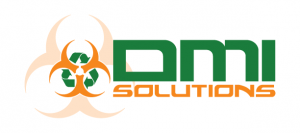Call us anytime
+1 800-455-7747
Email Us
Call us anytime
Email Us
Nearly all the hospitals in the United States use needles every day to treat patients. However, not all hospitals dispose of those needles or other wastes such as blades and syringes following the correct method, especially in places where hospital workers have no proper training.
Hospitals, surgery clinics, and other healthcare facilities need to be careful when disposing of hazardous medical waste. They may also hire a professional medical waste disposal company to do the job.
If we refer to the usage of needles in hospitals, what’s the daily figure? It may sound like an overblown and scary number, but it’s true.
According to the World Health Organization (WHO), healthcare facilities administer 16 billion injections worldwide every year. If we do some rough calculations, we can figure out how many needles hospitals in the United States use.
Nearly 5 percent of the global population lives in the USA, and if we consider 4 percent of the total needles used globally, around 800,000,000 needles are used in the US annually. It means the healthcare facilities in the country use a little over two million needles every day!
The health risks of handling medical waste incorrectly may lead to spreading diseases. Accidental injuries or exposure to toxins due to poorly managed medical waste can transmit life-threatening diseases or bacterial infections. These are the far-reaching impact of non-compliant disposal of needles and other medical waste.
Injuries from needles because of improper disposal also increase the risk of illness or injury to doctors, nurses, other staff, and visitors. Another risk is long-term damage to the environment by affecting water supply, soil, rivers, and lakes all over the country.
Health organizations of various sizes and capacities produce medical waste, starting from physicians’ offices, surgery centers, large hospitals, dialysis centers, and cancer research facilities to tattoo parlors. The most common medical waste these facilities generate includes biological and pathological waste, radioactive waste, and infectious waste. Sharps, such as needles and syringes also fall in the category of hazardous waste.
The two million needles and medical wastes that US healthcare centers produce daily need to be disposed of and sterilized to prevent any possibility of spreading infection. The first step in that process is collecting all the waste carefully.
Dumping needles in regular trash bins or even in biohazard bags is quite unsafe. Doing this could lead to injury or infection to hospital staff or visitors by accidentally getting poked with needles. Also, the needles or syringes may rip the biohazard bags and cause them to leak, resulting in the infection of the local water supply.
To store needles and other waste, using a sharps container is ideal. These containers are designed for waste disposal purposes, and they can safely store blades, needles, and syringes in them.
Healthcare facilities need to place sharps containers around the areas where needles are frequently used, such as exam rooms, labs, nurses’ stations, and pharmacies. Positioning the containers close to the point of use will help the healthcare staff use them conveniently.
Once the container is full, let a professional waste removal company pick it up for transportation to a medical waste disposal facility where the waste will be sterilized and disposed of. Some US states give health organizations a 30-day timeline to safely dispose of sharps waste.
States and Federal governments in the US are constantly updating regulations on managing medical waste. This is why it is often difficult for healthcare facilities to keep up with those new rules and protocols.
Any healthcare organization or facility that produces medical waste that fails to comply with federal and state regulations will likely face financial and other penalties exceeding $50,000 daily per violation. Besides, there could be added risk of lawsuits or charges of malpractices.
To comply with rules properly and avoid the risk of penalties, healthcare organizations often outsource their medical waste management and disposal tasks to professional medical waste management companies. A reputable local company will follow all the regulations and best practices for properly managing medical waste.
For example, hospitals and other healthcare facilities have to comply with the regulations of the Health Insurance Portability and Accountability Act (HIPAA) and the Occupational Safety and Health Administration (OSHA) to stay compliant. A medical waste company ensures that the relevant healthcare facility ticks all the boxes.
Educating physicians, healthcare authorities, and employees about the risks of poor medical waste handling, storage, removal, and disposal help their facilities stay compliant. Also, hiring a licensed and experienced medical waste management company with expertise in collecting, storing, transporting, and disposing of medical waste can keep the facilities safe and fulfill all legal obligations.
If you partner with a top medical waste disposal company, it will understand the health risks and budgetary challenges in managing medical waste. A professional waste management company like DMI Solutions can help streamline your medical waste disposal process to perfection.
As a seasoned waste management organization, we have made strides in making medical waste removal a safe and cost-effective process in healthcare settings. Besides technological advances for efficient waste management, we also provide compliance training and OSHA office training to healthcare facilities to help them keep off needle-related injuries in the workplace and also in homes.
If you are looking for comprehensive medical waste management services for your hospital or medical clinic, call us at +1 800-455-7747 to get more information. You can also send an email to info@dmisolutionsinc.com, and we will be more than happy to help you.

© Copyright 2020 by DMI Solutions INC